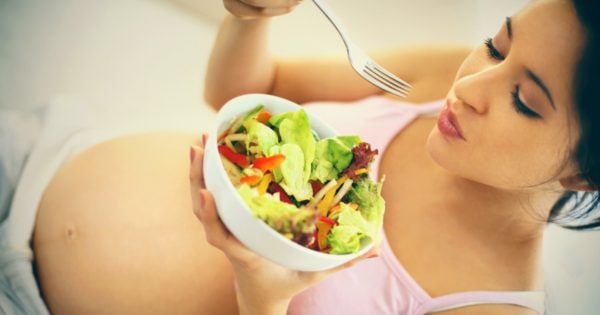We often hear of the importance of eating well during pregnancy, but the focus of these health messages is usually the developing baby. Women are told to avoid certain foods and to eat plenty of other foods for the sake of the baby. These are good messages, of course, but could what women eat during pregnancy also be important for their own mental health? Could diet in pregnancy actually impact on a woman’s risk of developing postnatal depression?
Recent studies have shown that diet is important for mental health. A ‘healthy diet’ has been shown to offer some protection from mental illness, and an ‘unhealthy diet’ has been associated with worse mental health. This makes sense, because our brains need certain vitamins and minerals, plentiful in healthy foods, to function at their best.
[MoreStories]
This is a growing area of interest for scientists at the moment, and more and more research is being undertaken to better understand exactly how food affects mood. But it’s not straightforward. One of the issues facing researchers is the question of which way around the food and mood relationship goes – is it feeling low that leads people to make poor food choices, or is it the poor food choices that leads to feeling low?
Pregnancy is a time that food is particularly important. Making and growing a baby is intense work and there is an increased demand for nutrients, just at the time that morning sickness and low energy can lead to less than ideal food choices!





























































































